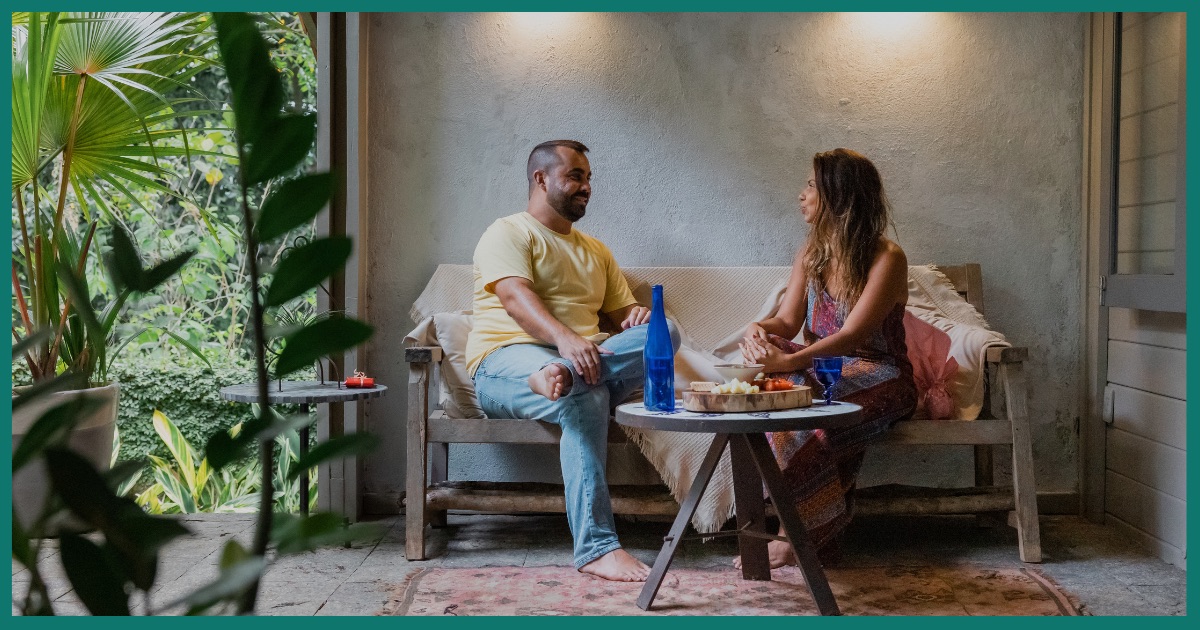When You Quit Drinking but Your Partner Doesn't: A Guide for Couples
By Sophie Solmini
Founder, ICADC, MATS, NCRC

Clinical Context: This article is reviewed by a Certified Alcohol and Drug Counsellor. It provides educational information and is not a substitute for professional medical advice.
Friday night arrives. You’re feeling proud of your decision to stop drinking, looking forward to a clear-headed weekend. But then your partner comes home, opens a bottle of wine, and the familiar 'pop' of the cork suddenly feels deafening. The evening now feels divided into two separate experiences: theirs and yours.
This is one of the loneliest and most challenging parts of the recovery journey. You’re changing your life for the better, but your partner is still engaged in the very habit you’re trying to leave behind. It can create a quiet tension, a sense of distance, and a whole new set of social hurdles to navigate as a couple.
If you're in this situation, your feelings are completely valid. It's a delicate balancing act. How do you protect your own recovery without policing their choices? At Heal@Home, we guide individuals and families through this complex dynamic. This guide is about finding a path forward that honours your journey while respecting your partner.
First, Acknowledge the Complicated Feelings
It's crucial to admit that your feelings about this are likely complicated and even contradictory. There’s no right or wrong way to feel.
- Pride and Resentment: You can be incredibly proud of your own progress while simultaneously feeling a flash of resentment when your partner drinks freely without a second thought.
- Loneliness: The shared ritual of a drink after work or on the weekend is gone, and it can feel like you've lost a key point of connection.
- Fear: You might worry about being seen as “boring” now, or fear that your relationship won't survive this fundamental change in your lifestyle.
- Temptation: Having alcohol in the house when you're trying to quit is a constant test of your resolve.
Communication Without Confrontation: A New Way to Talk
The goal is to turn this into a 'you and me vs. the problem' situation, not a 'you vs. me' battle. This requires a new set of communication tools.
- Focus on Your 'I': This is the golden rule. Instead of saying, “You shouldn’t drink in front of me,” try, “I’m finding it really challenging to be around alcohol in these early stages, and I would appreciate your support.” One is an accusation; the other is a vulnerable statement of your needs.
- Talk About Your Journey, Not Theirs: Share what you’re gaining from sobriety,better sleep, more energy, less anxiety. Let them see the positive changes in you. This is far more inspiring than criticizing their habits.
- Set Clear, Kind Boundaries: Boundaries are not punishments; they are rules of engagement to protect your well-being. A fair boundary might be: “I would love to have a date night, but could we try a place that doesn’t revolve around a bar, just for now?” or “I need our bedroom to be an alcohol-free zone for my peace of mind.”
Your Anchor in a Stormy Sea: How Medical Support Helps
Protecting your sobriety when you live with a drinker requires a rock-solid foundation. This is where modern medical support provides a powerful advantage, acting as your personal anchor.
At Heal@Home, we use evidence-based tools like Medication-Assisted Treatment (MAT). A medication like naltrexone doesn't just help you avoid drinking; it actively works in your brain to reduce cravings. This is critical in your situation. When your partner pours a glass of wine, naltrexone can help quiet the automatic craving signal in your own brain, making their drinking far less of a personal trigger for you. It turns down the volume on the internal battle, giving you the mental space and resilience to navigate the situation calmly and confidently.
Taking Care of Yourself is Not Selfish
Remember, you are only in control of your own journey. Putting energy into your own self-care and support systems is essential.
- Find Your People: Connecting with others on a similar path is vital. This could be a support group like SMART Recovery or an online community where you can share your experiences with people who truly get it.
- Create New Shared Activities: Be the one to suggest a new ritual for you as a couple. Maybe it’s a weekly walk after dinner, a new board game, or finding a new series to watch together. Actively build new points of connection.
- Seek Family Support: Even if your partner isn't ready for change, you can find support. Al-Anon is a resource for families and friends of people with drinking problems, offering a space to share your own struggles.
A Path Forward, Together or Apart
Changing your relationship with alcohol when your partner hasn't is a test of communication and respect. If you're in Canada and navigating this journey, you don't have to do it alone. Contact Heal@Home for a confidential chat about our programs and how they can empower you. Call us at 647-545-6751 or visit us online today.
Interested in our Program?
Our team provides a private, 12-week protocol designed to help you regain control from home.
Speak with our Team